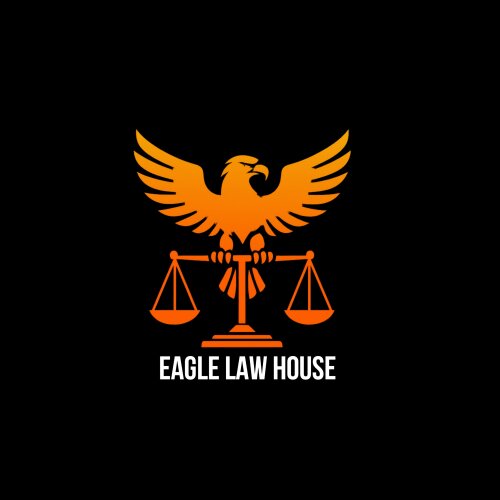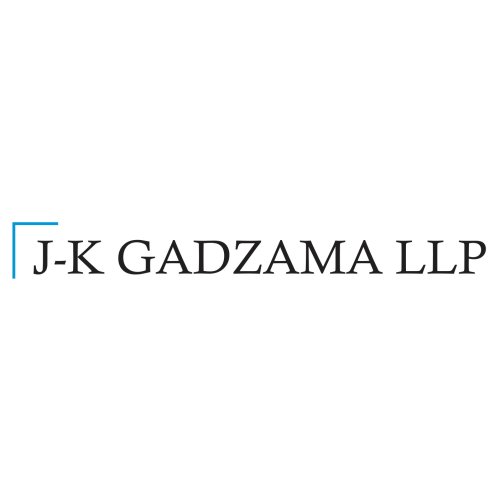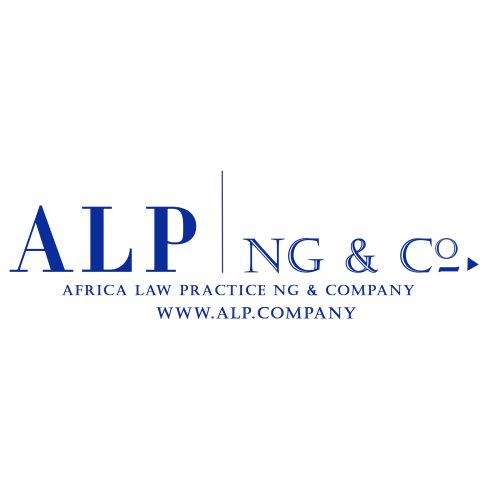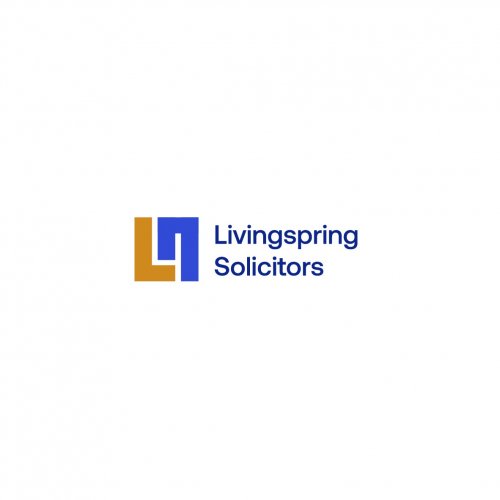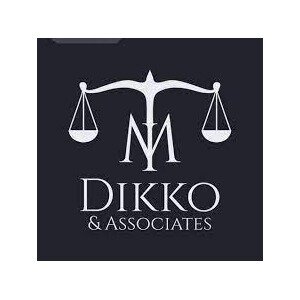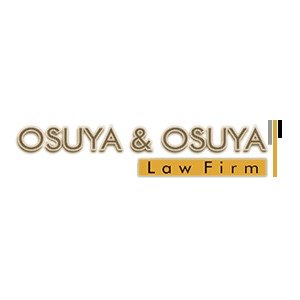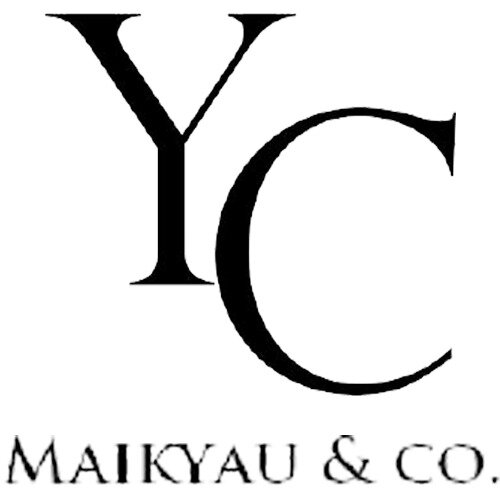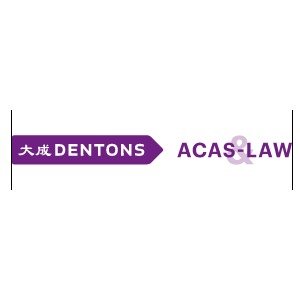Best Corporate & Commercial Lawyers in Abuja
Share your needs with us, get contacted by law firms.
Free. Takes 2 min.
List of the best lawyers in Abuja, Nigeria
Nigeria Corporate & Commercial Legal Questions answered by Lawyers
Browse our 1 legal question about Corporate & Commercial in Nigeria and read the lawyer answers, or ask your own questions for free.
- I’m planing to start a tech startup company in Nigerian
- What type of company am I to register and what’re the legal requirements and steps.
-
Lawyer answer by CO-dunni Law Solicitors
You would need to call us directly for a telephone consultation for us to be able to advice you accordingly. You usually would need to register first with corporate affairs commission, Federal Inland revenue service and obtain license from Central...
Read full answer
About Corporate & Commercial Law in Abuja, Nigeria
Corporate and commercial law in Abuja, Nigeria is a branch of legal practice that deals with the formation, operation, regulation, and dissolution of companies, as well as commercial transactions and relationships. As Nigeria’s capital and a major economic hub, Abuja hosts a diverse range of businesses from startups to multinational corporations. The legal environment here is shaped by both federal statutes and local regulations aimed at fostering economic growth while protecting business interests and stakeholders. Corporate and commercial law covers company incorporation, mergers and acquisitions, contract drafting and enforcement, regulatory compliance, restructuring, intellectual property, and dispute resolution. Navigating these complex areas requires specialized legal knowledge and understanding of the business climate in Abuja.
Why You May Need a Lawyer
Many individuals and businesses in Abuja seek legal advice in corporate and commercial matters for various reasons. Common situations where a lawyer’s expertise is invaluable include:
- Starting a business and choosing the appropriate structure
- Drafting, reviewing, or negotiating commercial contracts and agreements
- Compliance with local and federal regulations, including tax, labor, and environmental laws
- Handling mergers, acquisitions, and business restructuring
- Managing disputes between shareholders, partners, or with third parties
- Protecting intellectual property rights
- Securing licenses and permits required to operate in Abuja
- Recovering debts or managing insolvency proceedings
- Expanding business operations or attracting investment
- Dissolving or winding up a company according to law
A qualified lawyer ensures your interests are protected, helps you comply with all legal requirements, and can prevent costly mistakes or disputes down the line.
Local Laws Overview
Corporate and commercial activities in Abuja are primarily governed by federal laws with some state and local regulations. Key legal frameworks include:
- Companies and Allied Matters Act (CAMA) 2020: This is the main law regulating company formation, management, and dissolution in Nigeria.
- Investment and Securities Act: Governs market practices, securities, and investments, overseen by the Securities and Exchange Commission (SEC).
- Nigerian Investment Promotion Commission Act: Sets out guidelines for foreign investment and incentives in Nigeria.
- Federal Inland Revenue Service Act (FIRS): Regulates federal taxation issues applicable to businesses in Abuja.
- Industrial Training Fund Act, Labour Act, National Industrial Court Act: Covers employment relationships, dispute resolution, and workers’ rights.
- Anti-Money Laundering and Anti-Corruption Laws: Includes the Economic and Financial Crimes Commission (EFCC) Act and related regulations.
- Abuja-specific regulations: Businesses must also comply with rules set by Abuja Municipal Area Council and other local agencies regarding business premises, signage, and operational permits.
A legal professional can help clarify how these laws affect your specific situation and ensure your business activities are in compliance.
Frequently Asked Questions
What are the main requirements to register a company in Abuja?
To register a company, you need a business name, registered office address in Abuja, at least two shareholders and directors, a memorandum and articles of association, identification documents, and payment of registration fees at the Corporate Affairs Commission.
Can a foreigner own a business in Abuja?
Yes, foreigners may own and operate businesses in Abuja. However, they must comply with registration requirements at the Corporate Affairs Commission and other agencies, and may need business permits, immigration approvals, and to meet certain minimum share capital rules for some sectors.
What taxes apply to companies in Abuja?
Common taxes include Company Income Tax, Value Added Tax (VAT), Pay-As-You-Earn (PAYE) for employees, and sometimes local levies such as signage or waste management fees.
How can I protect my intellectual property?
You should register your trademarks, patents, or copyrights with the relevant Nigerian authorities. Legal advice is essential to ensure proper documentation and protection.
What should I do if a business dispute arises?
Seek legal advice immediately. Disputes can often be resolved through negotiation, mediation, or as a last resort, through the courts or arbitration.
How long does it take to incorporate a company?
Incorporation with the Corporate Affairs Commission can now be completed within a few days if all required documents are in order, thanks to online registration systems.
What are the legal consequences of not complying with Abuja commercial regulations?
Failure to comply can lead to penalties, fines, business closure, personal liability for directors, or criminal prosecution, depending on the violation.
Are there restrictions on certain types of businesses?
Yes, some sectors require special licenses or have restrictions on foreign participation. Examples include oil and gas, financial services, and telecommunications.
Do I need a separate Abuja-specific license to operate?
Businesses often need both federal and Abuja Municipal Area Council licenses, along with sector-specific permits.
How do I dissolve a company based in Abuja?
Company dissolution must follow procedures in the Companies and Allied Matters Act, which includes passing a resolution, appointing a liquidator, settling debts, and filing with the Corporate Affairs Commission.
Additional Resources
Several government bodies and organizations can be useful for those needing help or information regarding corporate and commercial matters in Abuja:
- Corporate Affairs Commission (CAC)
- Securities and Exchange Commission (SEC)
- Federal Inland Revenue Service (FIRS)
- Nigerian Investment Promotion Commission (NIPC)
- Small and Medium Enterprises Development Agency of Nigeria (SMEDAN)
- Abuja Chamber of Commerce and Industry (ACCI)
- The Nigeria Bar Association (NBA) Abuja Branch
- Economic and Financial Crimes Commission (EFCC)
- Abuja Municipal Area Council (AMAC)
These agencies provide official information, registration services, and often conduct public enlightenment sessions for businesses and investors.
Next Steps
If you need legal assistance in corporate and commercial matters in Abuja, start by identifying your specific needs. Gather all relevant documents and information, then consult a qualified lawyer with experience in Nigerian corporate law. You can find lawyers through recommendations, professional associations, or online directories. Ensure your lawyer is familiar with both federal and local laws relevant to your industry and location. Early legal advice can save time, prevent disputes, and ensure that your business is built on a solid legal foundation. Do not hesitate to contact the relevant government agencies listed above for guidance and support as you proceed.
Lawzana helps you find the best lawyers and law firms in Abuja through a curated and pre-screened list of qualified legal professionals. Our platform offers rankings and detailed profiles of attorneys and law firms, allowing you to compare based on practice areas, including Corporate & Commercial, experience, and client feedback.
Each profile includes a description of the firm's areas of practice, client reviews, team members and partners, year of establishment, spoken languages, office locations, contact information, social media presence, and any published articles or resources. Most firms on our platform speak English and are experienced in both local and international legal matters.
Get a quote from top-rated law firms in Abuja, Nigeria — quickly, securely, and without unnecessary hassle.
Disclaimer:
The information provided on this page is for general informational purposes only and does not constitute legal advice. While we strive to ensure the accuracy and relevance of the content, legal information may change over time, and interpretations of the law can vary. You should always consult with a qualified legal professional for advice specific to your situation.
We disclaim all liability for actions taken or not taken based on the content of this page. If you believe any information is incorrect or outdated, please contact us, and we will review and update it where appropriate.
Browse corporate & commercial law firms by service in Abuja, Nigeria
Abuja, Nigeria Attorneys in related practice areas.



